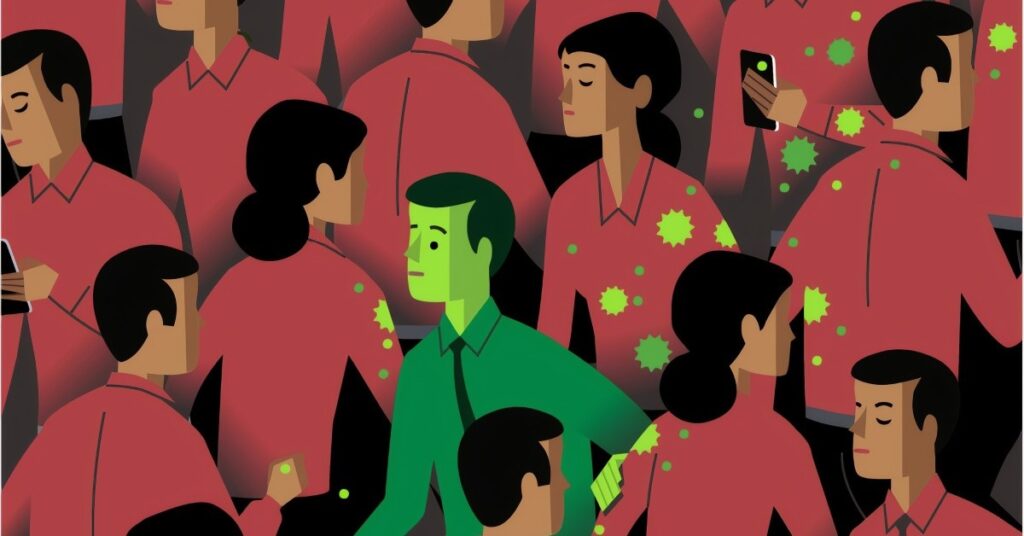
What Does a Family Nurse Practitioner Do?
Family nurse practitioners perform most of the same tasks as [...]

Community health in the US is said to have not one birthplace, but two. It all started in 1965 when physician-activists H. Jack Geiger and Count D. Gibson Jr. helped launch the first community health centers in the nation—one in Dorchester, Massachusetts, the other in Mound Bayou, Mississippi.
That the centers were built in an inner-city neighborhood and a rural community was not happenstance. Rather, it arose from the civil rights and social justice movements of the 1960s. Before the development of community health centers, accessible health services within low-income communities were rare. Geiger and Gibson helped change this through their mission to provide accessible, affordable, and high-quality health care to all.
Despite the decades of political, social, and economic challenges that followed, community health centers have remained committed to their mission. Today, they make up the largest unified primary care network in the country. Geiger and Gibson’s belief that poverty-causing conditions must be addressed before the health of a community can be sustained remains integral to the field of community health.
The Centers for Disease Control and Prevention (CDC) describes community health as a field that works to “promote healthy behaviors where Americans live, learn, work, and play.” While this primarily speaks to the field’s overall focus on promoting healthy living at the local level, its initiatives are diverse and far-reaching. Many workers help prevent chronic diseases and bring the greatest health benefits to the greatest number of people in need. Others seek to reduce health gaps caused by differences in race and ethnicity, location, social status, income, and a variety of other factors known to affect health.
If promoting health in a neighborhood, a city, or an entire region is at the top of your career goals, a community health science degree will set you on the right path. It will provide you with a solid understanding of the issues that impact community health and healthcare systems—and open doors to a broad scope of professions in the field.
So, what can you do with a community health science degree? We’ll answer that question and others in this article, including:
Community health science degree programs offer a mix of coursework, labs, and experiential learning that focuses on protecting and improving the health of communities through education, promotion of healthy lifestyles, and research for disease and injury prevention. These degrees are available at the undergraduate and graduate levels.
Community health promotion is often classified into three categories, which each have distinct goals:
These programs aim to reduce risk factors and increase health promotion and disease prevention.
Secondary healthcare programs are administered in a hospital department setting.
Highly specialized care, tertiary healthcare typically involves disease or disability management.
Undergraduate students completing a community health science degree spend roughly half of their program covering broad general education subjects such as mathematics, English, sciences, history, and languages.
Another 30 to 36 credits—or 10 to 12 courses—are devoted to providing them with an introduction to the planning, development, implementation, and evaluation of community health programs. They’ll also learn the critical components of public health education, such as social and behavioral health, research and assessment, epidemiology, and chronic and communicable diseases.
Similar undergraduate majors that focus on the awareness, education, and research of community and population-based health include community health promotion and community health education.
At the master’s level, community health science degrees require students to undertake a more thorough investigation into health promotion, education, policy, and research. Many graduate programs in this discipline operate on a Master of Science (MS) track. The degree emphasizes community and psychosocial research and prepares students to practice in health education, research, and policy.
The Master of Public Health (MPH) represents another popular approach to the graduate study of community health science. Because of the expansive nature of public health, many MPH programs allow students to focus their studies in a specific area of public health and gain the skills needed for a career promoting health in a community-based environment.
The online Master of Public Health at Tufts University, for example, provides students with rigorous foundational coursework, followed by a concentration in epidemiology and biostatistics. This track serves students pursuing careers investigating patterns and causes of disease, designing studies, and applying statistical techniques to collect and interpret public health data.
Doctoral degrees in community health science are primarily sought out by those who aspire to take on leadership positions in professional, academic, clinical, and community organizations within the public health sector. Since most relevant doctoral programs tend to operate under the title of public health or health science, prospective students should be sure to target schools that offer community health or community health science concentrations.
The Doctor of Public Health (DPH or DrPH) is a common degree path for those seeking the advanced knowledge that’s necessary to lead programs and policies effectively in the field. Practice-based and multidisciplinary, it’s often best suited for individuals who have received an MPH or a related graduate degree and have ample relevant professional experience.
The Doctor of Health Science (DHS or DHSc) is another path that prepares students for leadership-oriented positions in community and public health. Whereas the DPH is rooted in public health program and policy leadership, DHS programs provide a foundation for research and focused study in a specialized clinical area, preparing students to become leaders in healthcare practice and education.
A Doctor of Philosophy (PhD) in the field prepares students for a career in public health research. Curricula integrate basic and applied approaches to address public health problems in the community as well as real-life studies that illuminate problems affecting the health of individuals and communities. Students graduate with the comprehensive knowledge and the methodological skills to translate research into policy and practice.
| University and Program Name | Learn More |
|
Virginia Commonwealth University:
Online Master of Social Work
|
US News and World Report doesn’t provide rankings for the top schools for community health science degrees, but it does offer a list of the best public health schools. The ten schools that rank highest on this list include:
Students can pursue community health through the school’s MPH program. They’ll “apply both social and behavioral sciences to enhance the health and well-being of communities and promote health equity.”
Columbia has several faculty members who specialize in community health. You can become certified in relevant subspecialty areas like population mental health.
The Emory MPH program includes a community health development concentration that “prepares professionals to work at community, district, and national levels to strengthen indigenous capacity to address their priorities, improve health, and move toward well-being.” Required coursework includes program management and evaluation.
Harvard’s MPH doesn’t include a community health specialization. However, it does offer a health and social behavior field of study, which prepares graduates to understand and promote equitable care. It is designed for early career professionals and can lead to careers in government, advocacy, and community health settings.
This program is designed for professionals with two or more years of work experience. Relevant concentrations at Johns Hopkins include health leadership and management, health systems and policy, and social and behavioral sciences in public health. With a one-to-one ratio of required to elective courses, students have significant agency over their education.
The place-based health concentration at UNC gives students “the knowledge and skills to engage and collaborate with diverse communities to promote access to services and care, economic security, home stability, higher quality social systems and optimal health.” The school works in every county in North Carolina.
Berkeley emphasizes “how biological susceptibility and resistance works alongside social, physical and cultural environments to influence the emergence and prevalence of disease.” Students can further specialize in health and social behavior, maternal, child and adolescent health, and public health nutrition.
Michigan offers an online Master of Science (MS) in Population and Health Sciences through its School of Public Health. It’s a research-intensive program; students learn to conduct population research and analyze data.
Students can take up to five years to complete the school’s MPH in Community Health Promotion. A malleable curriculum allows for a specific focus on community health issues, such as obesity. The program includes research and practicum opportunities.
The University of Washington Master of Public Health in Community-Oriented Public Health Practice (COPHP) focuses on giving students practical experience. You’ll complete 120 practicum hours in your first year and a year-long capstone project with a local organization after.
Many types of community health science degrees are available online. Whether a bachelor’s, master’s degree, or doctorate, these programs are well-suited to students looking for a convenient and flexible way to boost their credentials in the field.
Schools that offer online bachelor’s degree programs in community health science include:
The four tracks in the ASU program are: community-based health outcomes, health legislation and regulation, integrated care, language, speech and communication. Students can sample each specialization before choosing one. Their degree doesn’t lead to a license.
Completing this degree prepares graduates for the Certified Health Education Specialist Exam (NCHEC) exam. In senior year, you’ll complete an internship and can even pursue an accelerated master’s degree.
In this online BS, students complete coursework in microbiology, human growth and development, and general human physiology. Students also take management classes to prepare for leadership positions.
According to the school website, the program is “interdisciplinary in nature” and can lead to a variety of careers including at community organizations and non-profits.
This degree “includes organized interdisciplinary efforts that concentrate on the physical, mental, social and environmental health concerns of communities and populations.” Students complete an internship to prepare for their careers after graduation.
The following schools are among those offering online master’s degrees in community health science:
This program, which has online and in-person formats, and includes an internship, prepares graduates for education leadership careers. Through this program, you can qualify for a Certified Health Education Specialist credential.
Students in this program learn the skills needed to perform assessments, evaluations, and community work.
Designed for current professionals, “Programs focus on emergent industry sectors in public health and health care that have a need for highly skilled professionals.” Students learn how to leverage their skills into solutions.
Purdue offers hybrid and online degree options to students on a full and part-time basis. You can choose a family and community health or health statistics concentration.
This program “provides students with a scientific knowledge base, practical public health experience, and scientific research and writing experience.” It’s offered on a full and part-time basis and typically qualifies graduates for administrative positions. Those with at least three years of experience qualify for the school’s Professional Enhancement Program (PEP).
Schools that offer community health science-specific doctoral degrees in an online format are much harder to come by—as are those that offer online doctorates in public health or health science with a community health specialization.
Earning a doctorate in the field through an on-campus program may come at a higher cost and offer less flexibility than online formats. Still, they allow students specific benefits, such face-to-face communication with their professors, supervisors, and other students—and of course, greater access to particular degree paths and concentrations.
Community health science program graduates are a diverse group. Depending on their level of education, specialization, and professional experience, their degree may open doors to roles in public health— including education, wellness, and fitness—human services, research, policy, and direct care. As a rule of thumb, the more advanced the degree, the more specialized the career path.
While it’s possible to bypass education requirements for some jobs, a good number of the roles in community and public health demand a master’s degree or higher. Because of the barrier, bachelor’s degrees can nearly guarantee entry-level jobs in the field, such as:
Health coaches work to improve their clients’ physical health. They can tackle specific issues, such as smoking, or address general health. According to Glassdoor, health specialists earn an average annual salary of nearly $61,000.
Community health worker is a term that covers several job titles, including caseworker and counselor. These professionals often assist community-serving medical professionals. According to the US Bureau of Labor Statistics (BLS), the demand for health education specialists and community health workers is growing at a faster than average rate. These professionals earn a median annual wage of $46,000.
Health education is an essential component of preventing issues before they arise. As an educator, you may go into schools on behalf of an organization to teach students about things like safe sex and avoiding drugs. You can work for many kinds of organizations, including government, non-profit, and private. These professionals fit into the BLS’ health education specialist and community health worker classification.
These professionals typically work to evaluate and improve budgets. According to PayScale, they earn nearly $68,000 per year on average .
Since MS in community health programs focus on academic or research-based (rather than practical) applications in the field, graduates typically pursue careers in academia or research settings as educators, researchers, or publishers. Specific titles may include:
As a public health researcher, you’ll collect and analyze data to identify factors impacting community health. They earn an average annual salary of $62,000, according to PayScale.
Analysts can work for a wide range of organizations, including governments, non-profits, and think tanks. They conduct policy and practice assessments, then propose improvements. According to PayScale the average analyst earns over $64,000 per year. With a master’s, you’ll likely earn more. Government analysts can earn far more with education and experience.
As a program manager, you’ll supervise research, not conduct it. The job requires organizational and financial skills, including securing funding and compliance with laws and regulations. According to Glassdoor, research managers earn nearly $88,000 on average.
Those graduating from community health-focused MPH programs are prepared for field-based careers in public policy, administration, education, and community practice. Typical jobs with this degree include:
As a community outreach manager, you’ll deal with every aspect of outreach, including working with local leaders and ensuring programs have adequate funding. You’ll also likely oversee a team and earn a salary over $58,000.
Another position that requires budgetary and analytical skills, program managers can decide which programs are selected to be taught in schools. They earn an average of nearly $56,000.
According to a CDC job posting for a health communication job, these professionals are “responsible for developing and disseminating clearly written, well-designed health communication materials for public health prevention partners in a variety of formats, such as web content, blogs, posters, training materials, etc.” You can expect to earn nearly $80,000 in this position.
As a hospital administrator, you’ll work to improve patient care. There are many hospital administrator roles—from specialized positions that focus on one aspect of the process—to overall hospital management positions. As a hospital administrator, you’ll likely earn over $70,000. However, there are high-ranking administrative positions that command far higher salaries and may require far more experience.
DPH graduates with a community health science specialization typically pursue careers focusing on the practical application of public health leadership and field education across varied settings, such as community health organizations, government agencies, and advocacy groups. Specific roles may include:
According to the BLS, health scientists typically conduct studies and research. There are many kinds of health scientists. For instance, you may focus specifically on pharmaceuticals. Community health scientists study the way disease spreads in a community. According to the BLS, these professionals earn a median annual pay of $91,510 and have an excellent job outlook.
According to University of Massachusetts – Amherst principal investigators are “responsible for the preparation, conduct, and administration of a research grant, cooperative agreement, training or public service project, contract, or other sponsored project.” They earn an average salary of around $107,000, according to PayScale.
Consultants are typically brought in as third party operators to advise or assess a project. They may focus on a specific aspect of an initiative, or oversee a whole project. According to ZipRecruiter, these professionals earn an average salary close to $70,000, though naturally pay is far higher for top professionals.
You’ll work in an oversight position in this role, usually giving recommendations about public health programs. This job does not require a master’s degree, but many professionals have one. You can expect to earn nearly $62,000.
DHS programs are designed for experienced healthcare professionals who want to advance to teaching or leadership positions. Graduates pursue a variety of advanced healthcare-related professions, including:
These professionals teach at the collegiate level and help foster the next generation of community health professionals. They can take on adjunct, part-time, or full-time faculty roles and earn a median annual pay of $124,890, according to the BLS.
A community-based clinical researcher works with community members to develop research plans. They may focus on tackling epidemiological issues. As a medical scientist, you’ll likely earn a median pay of close to $92,000 per year.
As a medical director, you’ll take on an overall administrative position in a facility. This means handling finances, in addition to care plans. In this role, you can expect to earn an average salary close to $225,000 per year. This position requires an MD.
Lastly, those who complete a PhD in community health science are generally qualified for leadership roles in research or academic positions with colleges and universities. Careers for PhD-holders include:
As a research director, you’ll lead a team of researchers, or even a department. This means making financial decisions, plus determining the direction of research. These professionals earn over $110,000 on average, according to PayScale.
Academic chairs work on the overall direction of a school’s program, meaning they determine program needs and work to create education initiatives to fill it. According to PayScale, you’ll likely earn an average salary of over $84,000 in this position.
(Last Updated on February 26, 2024)
Questions or feedback? Email editor@noodle.com

Family nurse practitioners perform most of the same tasks as [...]

You'll find FNPs in primary care clinics, hospitals, urgent care [...]

Based on what we eat, too many of us don't [...]

On average, health services managers earn over $100,00 per year. [...]

Do you see a math puzzle when you look at [...]
Categorized as: Health Informatics & Sciences, Social Work, Nursing & Healthcare